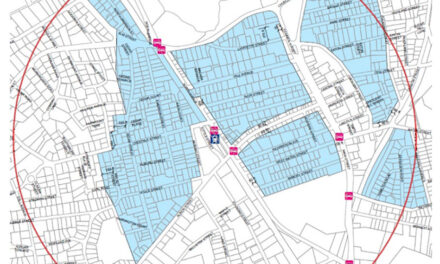Published in the April 13, 2020 edition.
By MARK SARDELLA
WAKEFIELD – Due to the COVID-19 economic shutdown, the town is facing a serious revenue shortfall for Fiscal Year 2021, which begins July 1, 2020. With expected losses in local receipts from the excise tax, local option meals tax and the hotel tax as well as projected cuts in state aid, Town Administrator Stephen P. Maio is expecting a $2.4 million deficit in the FY 2021 budget.
That means that cuts will be necessary to address this sudden and unexpected deficit in a $100 million town budget that was ready to go before a May 4 Town Meeting. The Annual Town Meeting will in all likelihood now be delayed until sometime in June. At this time, no layoffs or cuts in services are anticipated.
Last Thursday, FinCom Forecasting Subcommittee Chairman Dan Sherman along with members Doug Butler, Gerard Leeman and Joanne Reilly were joined in a Zoom teleconference meeting by Maio and Town Accountant Kevin Gill to discuss options for addressing the budget deficit.
Sherman laid out the numbers and there was discussion of various scenarios for the coming years, with some seeing more dismal prospects for long-term economic recovery and others more optimistic. But the main focus was the more immediate problem of cutting $2.4 million from the town’s FY 2021 budget.
Due to the economic shutdown, Sherman projected a drop in local receipts (excise tax, hotel tax and local option meals tax) from $8.2 million in FY 2020 to $7.2 million in FY 2021. Another $400,000 was attributed to the fact that the schools came in with a 4.8 percent budget increase for FY 2021. The rest of the town’s departments came in with increases of around 3.8 percent.
In addition to that $1.4 million deficit, Maio noted, the town has to be prepared for cuts in state aid. Initially, Sherman projected a 15 percent drop in local aid for FY 2021, but eventually the group settled on a less pessimistic 10 percent cut. That would lead to another $1 million reduction in revenue for the town bringing the projected budget deficit to $2.4 million for FY 2021.
To address the shortfall, Maio floated several possible measures that the town could take.
First, he suggested cutting operating budgets by $700,000. That could be accomplished mainly by not hiring for new positions. (For example, the town would not fill the newly created Economic Development Director position.) Maio said that he would expect the School Department to account for $400,000 of that reduction.
He also suggested splitting the roughly $2 million capital outlay budget by only approving half of it at the June Town Meeting and deferring the other half to the fall Regular Town Meeting when the town’s financial picture should be clearer.
Maio said that those two measures solve the local receipts part of the deficit but there’s still the anticipated $1 million loss in state aid. To deal with that, Maio is suggesting that the town cut this year’s appropriation for the OPEB (Other Post-Employment Benefits) fund from $1.6 million to $600,000. (The town has for years been taking the fiscally prudent step of prefunding it’s future retiree healthcare benefits through an OPEB trust.)
Maio stressed that at this point he was not looking at cutting any existing positions or reducing services.
Maio emphasized that these ideas were purely his own suggestions for a potential path forward. Budget reductions would have to be approved by the Town Council and the School Committee, recommended by the Finance Committee and ultimately approved by the voters at Town Meeting.
Maio noted that Town Council Chairman Edward Dombroski has invited the town’s state legislative delegation to the April 27 Town Council meeting. Maio expressed hope that by then there would be a clearer picture regarding the state aid piece, as the state is in the process of agreeing to a consensus revenue figure to base the state budget on.
Maio noted that he didn’t think the state would adopt a budget until after July 1, and even after that, the town could still be looking at 9C cuts in state funds. (The Governor has the authority under Section 9C of Chapter 29 of the Massachusetts General Laws to make spending reductions when there is a budget shortfall and there is no supplemental money to fund that shortfall.)




